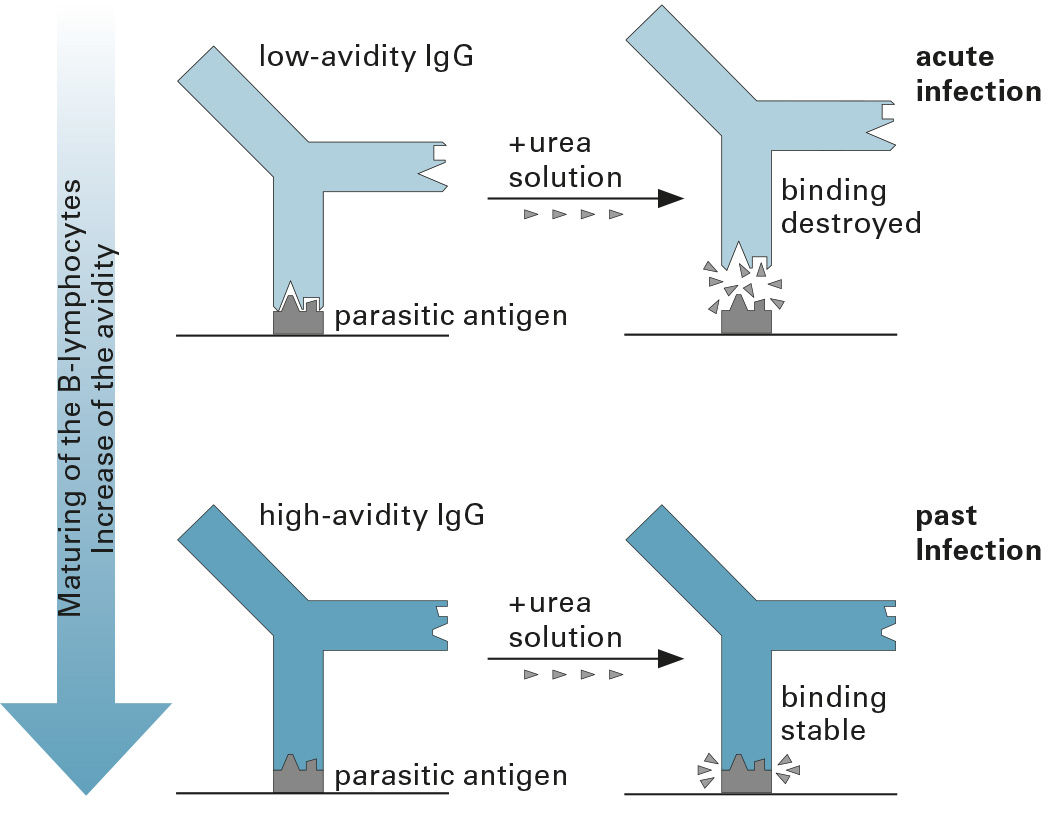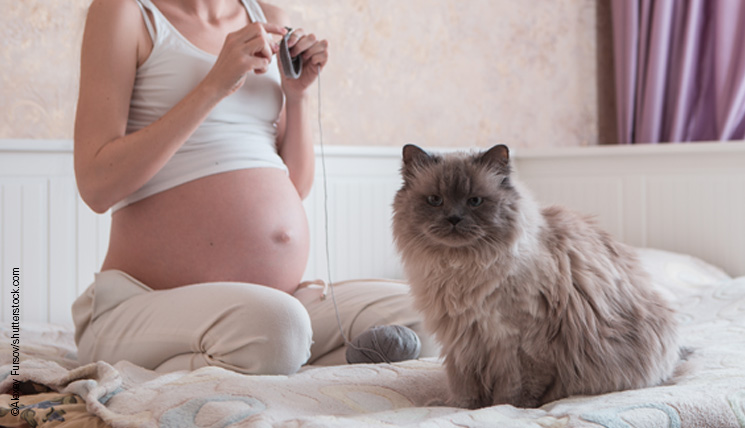Toxoplasmosis is an infectious disease which is caused by the parasite Toxoplasma gondii and primarily affects cats. Nonetheless, other mammals, including humans, can be an intermediary host and become infected with this pathogen. The detection of Toxoplasma infections in humans is of great significance in pre-natal diagnostics since primary infections of the mother may lead to severe damage in the child.
Especially out-door cats which hunt for mice can become infected with Toxoplasma by feeding on infected rodents or other raw meats. Usually, Toxoplasma infection leads to severe clinical symptoms and not seldom to death in kittens only. In adult cats, infections are mostly mild or even occur without any symptoms. The parasite reproduces sexually in the cat’s intestines. So-called oocysts form, which are excreted with faeces, but only become infectious after 2 to 4 days in the environment. The daily, diligent cleaning of the cat toilet is therefore a sensible preventative measure to protect persons or other pets from becoming infected.
Toxoplasmosis diagnostics
However, cats with an acute infection, which can spread the infectious oocysts, still pose an important risk of infection. Fresh infections are usually detected by determination of specific IgM antibodies. In the case of toxoplasmosis, however, in up to 20% of cats with acute infections, no IgM antibodies can be detected. These cats would therefore be classed as false-negative and thus pose a high risk of infection.
 The new Anti-Toxoplasma gondii ELISA Cat (IgG) Avidity determination offers an alternative to the detection of specific IgM antibodies.This test enables the diagnosis of a fresh infection irrespective of the presence of specific IgM antibodies. The immune system reacts to a fresh infection with the production of low-avidity IgG antibodies which are not yet optimally adjusted to the antigen. When the disease progresses, increasingly stronger-binding IgG antibodies are formed – the avidity grows. If low-avidity IgG is detectable in the sample, it can be assumed that the infection is in an early stage.
The new Anti-Toxoplasma gondii ELISA Cat (IgG) Avidity determination offers an alternative to the detection of specific IgM antibodies.This test enables the diagnosis of a fresh infection irrespective of the presence of specific IgM antibodies. The immune system reacts to a fresh infection with the production of low-avidity IgG antibodies which are not yet optimally adjusted to the antigen. When the disease progresses, increasingly stronger-binding IgG antibodies are formed – the avidity grows. If low-avidity IgG is detectable in the sample, it can be assumed that the infection is in an early stage.
In order to enable a comprehensive diagnosis of toxoplasmosis in cats, EUROIMMUN additionally offers the Anti-Toxoplasma gondii ELISA Cat (IgG) and the first anti-Toxoplasma gondii immunofluorescence test approved according to the German epizootic diseases act (Anti-Toxoplasma gondii IIFT Cat (IgM/IgG)).
